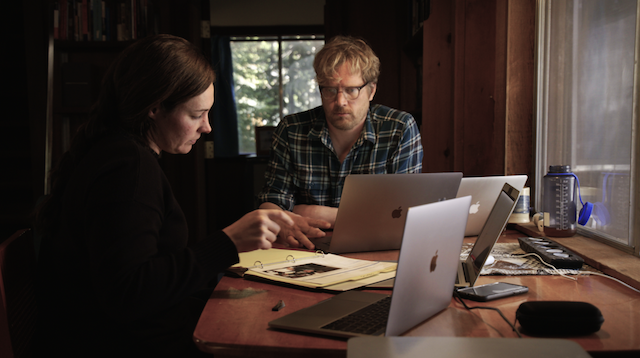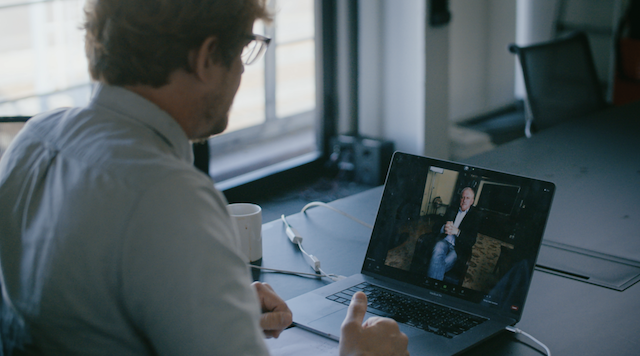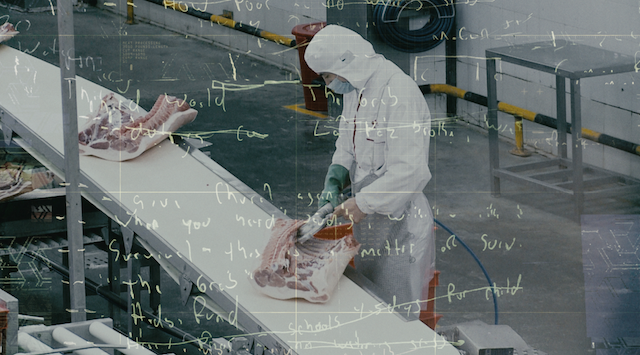
©Courtesy of Magnolia Pictures/Participants
The Grab : Quietly and seemingly out of sight, governments, private investors and mercenaries are working to seize food and water resources at the expense of entire populations. These groups are establishing themselves as the new OPEC, where the future world powers will be those who control not oil, but food. And it’s all beginning to bubble to the surface in real time. Global food prices have hit an all-time high, threatening chaos and violence. Meanwhile, Russia is using food as a weapon against the Ukrainians, and as a geopolitical tool to wield global power. THE GRAB is a global thriller combining hard-hitting journalism from The Center for Investigative Reporting with the compelling character-driven storytelling of director Gabriela Cowperthwaite, taking you around the globe from Arizona to Zambia, to reveal one of the world’s biggest and least known threats.
Director : Gabriela Cowperthwaite
Producer : Nathan Halverson, Amanda Pike, Blye Pagon Faust, Nicole Rocklin, Gabriela Cowperthwaite
Screenwriter : Gabriela Cowperthwaite
Distributor : Magnolia Pictures / Participant
Production Co : Center for Investigative Reporting Studios, Rocklin/Faust, Impact Partners
Genre : Documentary
Original Language : English
Release Date (Theaters) : Jun 14, 2024, Limited
Release Date (Streaming) : Jun 14, 2024
Runtime : 1h 44m

©Courtesy of Magnolia Pictures/Participants
Exclusive Interview with Director Gabriela Cowperthwaite and Emmy Award–winning Reporter Nathan Halverson
Q: Gabriela, what was your first impression of Nathan’s report about the Smithfield food which led you to make this film? And Nathan, what elements did Gabriella bring to the table that ended up getting you involving this project, even risking your life?
Gabriela Cowperthwaite: My first impression of the Smithfield Food situation was that it blew my mind. I was very confused as to why Smithfield was not as forthcoming or off the cuff, very transparent about [the acquisition].
It took Nate going to China to be able to tour the factory, speak to people for transparency. For me, it was very interesting that Smithfield’s people were being so careful on this end, on the American end with that.
Q: And Nathan…
Nathan Halverson: Look, I was smitten with Gabriela from day one, pre day one, because I hadn’t seen “Blackfish,” when Netflix was pretty new, after they had transitioned from sending the envelope to streaming. All anyone was talking about was “Blackfish.” Everybody had seen it and was talking about it.
It was this incredible, journalistic documentary that showed you what was happening to the orcas at SeaWorld. It was totally moving and it took something that could have been dry and informational and really made it profound. When I heard that Gabriela was interested in potentially working with us and trying to tell this big, global story, it was a no brainer for me.
Now you have a master of the storytelling craft, wanting to tell a story that I personally think is the most important story in the world. She gives us the best potential to not just have this reach so that we can reach not only the people who maybe pick up the New York Times or turn on NPR, but the people who are just on streaming [channels] — everybody across the country. That was really an incredible opportunity, and I feel grateful and fortunate for that.
Q: Can you explain what a trove is and what is it to people in general?
Nathan Halverson: The trove is a collection of thousands of emails. This company was basically tasked with going into Africa and trying to grab up the food and water supplies. These people have been involved in very controversial even deadly operations in the past.
We wanted to know why people that were trained with guns were now focusing on food and water and the trove gave us this incredible insight, not only into how they would speak publicly to the media, or when doing interviews, but how they spoke to each other about how these deals went down and how they looked at these deals. we don’t typically get that level of insider access and that was the key in helping us understand the big picture of what was going on there.

©Courtesy of Magnolia Pictures/Participants
Q: Smithfield Food was the largest purchase of an American business by a Shuanghui International Several years ago, maybe more than a decade ago, the Wanda Group bought AMC Theaters, the U. S. cinema chain, but eventually gave up their shares because of the COVID pandemic. What things should wed be concerned about these Chinese buy outs from an the American perspective?
Nathan Halverson: I’d say there were three things. Number one, it doesn’t ultimately matter who owns a thing if there’s enough water and food. It doesn’t matter if Wall Street’s profiting or if a company that’s publicly traded on the Hong Kong stock exchange is I think that’s number one.
Number two, I think the issue is that the U.S. Government is concerned about the Chinese government which is basically a fragmented authoritarian government. They have a centrally commanded economy, which is very different from the market based economy of the U.S.
When you have two very different styles of governance, the U. S. government wants to know, is this just our version of Western capitalism, is it one big publicly traded company buying another, or is this the Chinese government funding this deal to meet their strategic needs of food and water. If that’s the case, how does that impact our country?
What does it mean if we’re having shortages, but China needs that meat? That very thing happened during the COVID pandemic, when slaughterhouses were closed down and CEOs of meat companies were saying, “We have to keep the slaughterhouses open. We’re not going to have meat on the shelves.”
At the same time, they were saying that exports from Smithfield Foods, as I understand it, we’re increasing in China. So you have, on the one hand, the American government being concerned about meat shortages in the U.S. but at the same time, more meat is now moving to China. I think that’s the world that we’re moving into in the 21st century.
We’re going to have to navigate very carefully so that China doesn’t run into meat shortages. The U. S. doesn’t run into meat shortages because now these are two very wealthy and powerful countries.
Gabriela Cowperthwaite: I would love to add to this, Nate, when we were able to film Zhang Taixi and we understood now that when you’re talking about food as national strategy and security, China felt that right. When they went through the Chinese famine and they looked outward for help, we didn’t help them.
We stood by, of course this was the cold war and there were a million diplomatic geopolitical reasons. But from the Chinese perspective, there’s a country out there who has food who didn’t help stop starvation in China.
And so when we talk about human rights and we talk about all these national strategy things we weren’t there for a country in need. The film shows that you can expect China to be building up its own national strategy without being completely Reliant on a country like the U. S. that didn’t help them before.
Q:The U. S. government regulates the export of technology rigorously. Shouldn’t there be the same consideration for food and water? What’s your take on that?
Nathan Halverson: I don’t take political positions regarding my view. Traditionally, my role as a journalist is to go out and find hard-to-access information and then make it publicly available so people can have that exact policy question that you’re talking about.
This film further provides information that can help people get into that political debate at the end of the day. I will just say as a human, I want everyone in the world to be fed and the scientific fact is that there’s enough water to grow enough food to produce enough calories to feed everyone on the planet. Not just today, but in 2050 and beyond even if there were 10 billion people. So if we decide, as a species, that’s our goal, how do we get there?
If you like this interview, share your thoughts below!
Check out more of Nobuhiro’s articles.
Here’s the trailer of the film.

